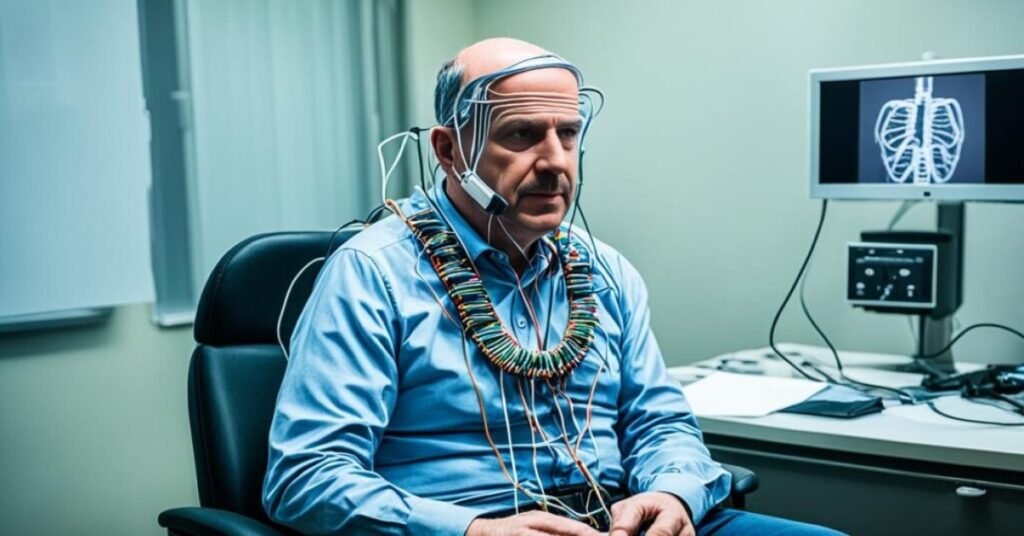Working with the pre-trial examination, guilt detection has always been at the center of some controversy regarding its legal use. More commonly known as lie detector tests, polygraph tests include monitoring of such activities as pulse rate, blood pressure, and deep and rapid respiration.
This wide-ranging review evaluates the effects of lie detector testing on the legal process, the significance of its use in investigative work, and the status of its admissibility in court, together with perceptions of its efficacy.
Polygraph’s Role in Investigations
In many legal cases, polygraph tests are employed during investigations to assist law enforcement in evaluating potential suspects or witnesses. The ability to gauge the truthfulness of statements can significantly impact the direction of an investigation, often providing leads or dismissing unworthy claims.
Benefits of Using Polygraphs
Enhanced Investigation Efficiency: The use of a lie detector can streamline investigations by identifying deceptive behaviors early on, allowing investigators to be aware of credible leads.

Deterrence of False Claims: Knowing that a lie detector can be administered can deter people from imparting false information, leading to more dependable witness statements.
Clarity in Conflicting Accounts: A lie detector can assist in clarifying discrepancies in memories, offering insights that could solve contradictions and guide further thinking.
Admissibility of Polygraph Results
One of the most contentious issues concerning lie detector testing in criminal instances is the admissibility of its consequences in court. While a few jurisdictions permit lie detector outcomes as evidence, others strictly limit their use. This variability will have large implications for criminal complaints.
Factors Influencing Admissibility
Jurisdictional Differences: Laws regarding the admissibility of lie detector outcomes vary extensively across states and international locations. Some courts take delivery of them below precise situations, even as others bear in mind they are inherently unreliable.
Quality of Administration: The credibility of the lie detector results can rely on how properly the test was administered. Courts may additionally scrutinize whether the examiner has become certified and if standardized procedures have been accompanied.
Jury Perception: Even admissible lie-detector effects may be viewed with skepticism by juries. Their notion of the reliability of such exams can in the long run affect the case’s outcome.
Understanding these elements is critical for legal specialists thinking about the use of polygraphs in their instances.
Polygraph Testing and Credibility
The mere act of taking a lie detector test can have an impact on perceptions of credibility in criminal instances. Parties involved may be viewed as extra or much less honest primarily based on their willingness to go through checking out and the results acquired.
Implications for Defendants
Increased Scrutiny: Defendants who refuse a lie detector check may face elevated suspicion, leading jurors to question their truthfulness. This notion can unfairly affect a case’s final results.
Impact on Plea Deals: Prosecutors may additionally use the willingness to take a lie detector as a bargaining chip in plea negotiations. A defendant who has the same opinion on the test can be seen as more cooperative, potentially influencing the prosecution’s decisions.
Public Opinion: In excessive-profile cases, media coverage can in addition expand the notion of credibility based on lie detector outcomes, affecting public opinion and probably influencing the jury pool.
The psychological implications of lie detectors expand past the courtroom, impacting how people are perceived inside the public eye.
Limitations of Polygraph Testing
Despite the capacity benefits, lie detectorh testing has excellent obstacles that can affect its utility in legal instances. Understanding those boundaries is important for criminal specialists.
Common Limitations
False positives and negatives: Lie detectors aren’t foolproof. False positives can arise, mainly due to innocent individuals being deemed misleading, while fake negatives can result in guilty events performing honestly.
Physiological Variability: Factors inclusive of anxiety, scientific conditions, or even medication can have an effect on physiological responses measured for the duration of the check, leading to inaccurate outcomes.
Lack of Standardization: The absence of everyday requirements for administering lie detector assessments can lead to inconsistencies in results and interpretations, undermining their reliability.
Awareness of these boundaries is essential for prison experts while thinking about lie detectors as a part of their approach.
The Future of Polygraph Testing in Legal Cases
As generation evolves, so does the landscape of lie detector testing. Emerging techniques and technology may shape the destiny of how lie detectors are used in felony contexts.
Innovations in Polygraph Technology
Integration with AI: Advances in artificial intelligence may additionally beautify the accuracy of lie detector testing by presenting extra complete statistical analysis and interpreting physiological responses more reliably.
Alternative Testing Methods: Other mental exams may additionally complement or replace conventional lie detector checks, presenting a broader knowledge of a person’s truthfulness without identical limitations.
Legal Reforms: Ongoing discussions approximately the efficacy and ethics of lie detector testing can also lead to prison reforms regarding its use in the courtroom, probably impacting how and while those tests are employed.
The future of lie detector testing in legal cases may additionally hinge on continued innovation and changing perceptions of its reliability.
Conclusion
Lie detector testing has an enormous effect on prison instances, influencing investigations, perceptions of credibility, and court outcomes. While those exams provide capability blessings, together with improving investigative performance and presenting clarity, they also face extensive barriers and challenges regarding admissibility and reliability. As generation evolves, the function of lie detector testing in prison cases may alternate, necessitating an ongoing examination of its advantages and downsides. Understanding those dynamics is important for felony professionals navigating the complexities of polygraph trying out of their practice.